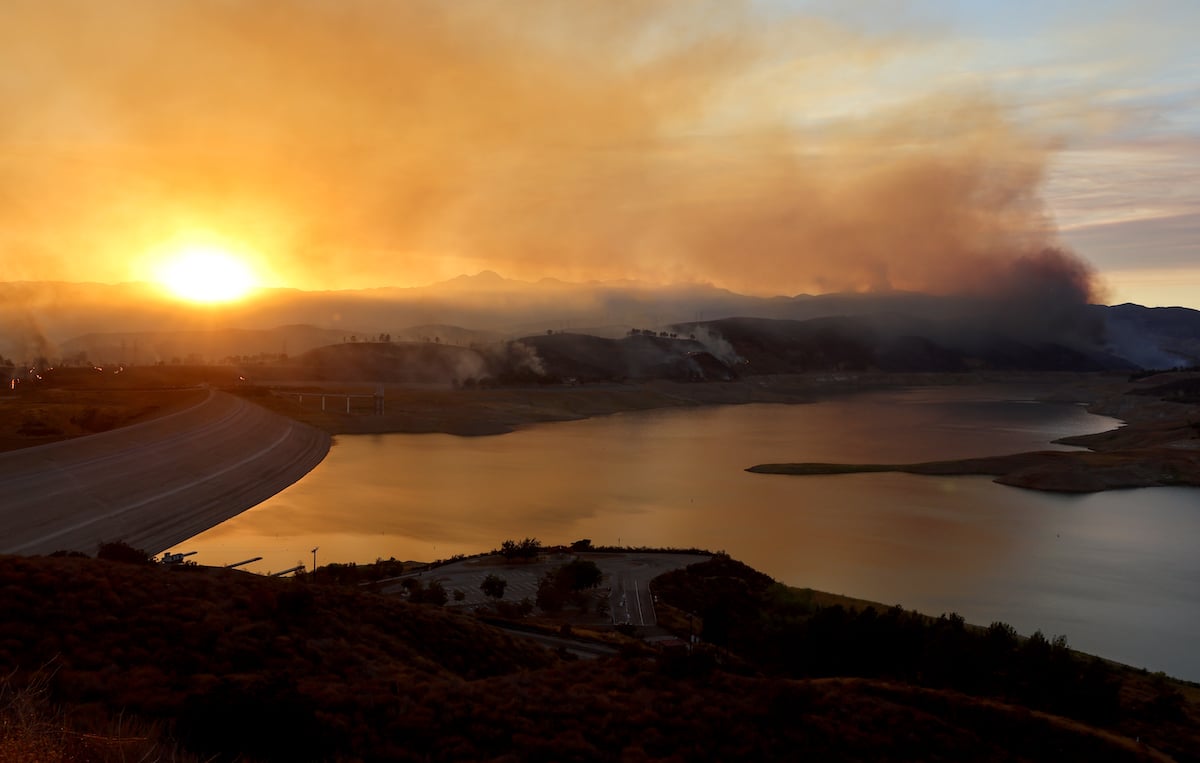Products You May Like
The Route Fire burning in Southern California on Aug. 31, 2022 emphasizes the urgency of climate action. Mario Tama / Getty Images
 Why you can trust us
Why you can trust us
Founded in 2005 as an Ohio-based environmental newspaper, EcoWatch is a digital platform dedicated to publishing quality, science-based content on environmental issues, causes, and solutions.
In the midst of wildfires, a late-summer heat wave and an ongoing drought, the state of California passed a rash of ambitious legislation this week to tackle the climate crisis.
Five of six climate-related bills championed by Governor Gavin Newsom passed the state legislature Wednesday, providing climate funding, limiting oil and gas wells and enshrining a 2045 carbon-neutrality deadline, among other things.
“This was a very big and historic win. It has taken this state decades to get to this point,” Democratic Senator Monique Limón from Santa Barbara said, as Cal Matters reported.
The bills passed on the last day of California’s legislative session. Newsom had encouraged lawmakers to approve the measures in the middle of August, surprising legislators who had been unable to pass some of the bills in the past, The New York Times reported.
‘We’re taking all of these major actions now in the most aggressive push on climate this state has ever seen because later is too late,” Newsom said when proposing the new bills. “Together with the Legislature’s leadership, the progress we make on the climate crisis this year will be felt for generations — and the impact will spread far beyond our borders. California will continue blazing a trail for America and the rest of the world on the swift and meaningful actions necessary for cutting carbon pollution, protecting communities and leading the clean energy future.”
Cal Matters detailed the bills that passed under the wire.
- AB 1279 confirmed California’s goal of reaching net-zero emissions by 2045.
- SB 1020 added interim renewable energy targets for retail electricity of 90 percent by 2035 and 95 percent by 2040 to meet the current goal of 100 percent by 2045. In addition, it mandated that state agencies use 100 percent clean energy by 2035, a decade earlier than previously stipulated.
- SB 905 required the California Air Resources Board (CARB) to determine steps and regulations for carbon-capture and storage projects at pollution hotspots like oil refineries.
- AB 1757 stipulated that the state set goals for removing carbon dioxide from the atmosphere through natural means like tree planting.
- SB 1137 bannned new oil and gas drilling within 3,200 feet of homes, schools, nursing homes and hospitals.
In addition, the state budget included a record-breaking $54 billion to be spent on climate programs over the next five years, The New York Times reported. It would put $6.1 billion towards electric vehicles, $14.8 billion towards public transit projects, more than $8 billion towards stabilizing the electric grid, $2.7 billion towards preventing wildfires and $2.8 billion towards managing drought.
In a slightly more controversial move, the budget also kept two nuclear reactors at the Diablo Canyon Power Plant running for another five years. Newsom argued this measure was necessary to bolster an electrical grid strained by drought and high heat without resorting to using more fossil-fuel energy, The Guardian reported. However, some environmental groups disagreed.
“Allowing Diablo to continue operating is beyond short-sighted,” Environmental Working Group President Ken Cook told The Guardian in an email. “It will only delay the state’s greenhouse gas emissions reductions goals and continue putting Californians at risk should a disaster strike the plant.”
One environmental measure that failed to pass was AB 2133, which would have upped the state’s 2030 greenhouse-gas-emission-reduction target from 40 percent below 1990 levels to 55 percent, according to Cal Matters. Some legislators were concerned that the state was not set to meet its existing target, and the bill failed by four votes.
Overall, however, Senate President pro Tempore Toni G. Atkins called the legislation that did pass “tremendous, decisive action” at a time when the state is dealing with extreme weather fueled by the climate crisis, CNN reported.
“Our state is facing the most extreme temperatures we’ve experienced this year, putting our communities, especially our most vulnerable neighbors, at risk,” Atkins said in a statement reported by CNN. “We’re also continuing to deal with an historic drought and the ongoing threat of wildfires.”
Subscribe to get exclusive updates in our daily newsletter!
By signing up, you agree to the Terms of Use and Privacy Policy & to receive electronic communications from EcoWatch Media Group, which may include marketing promotions, advertisements and sponsored content.
